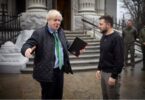IVANOV Igor
During the campaign, the now elected President of the Republic of Korea, Yoon Seok-yeol, promised to break with the “symbol of the autocracy of presidents” and move his future residence and office from the Blue House, which is the traditional residence of the head of state and the center of South Korean politics. He argues that the move will allow him to communicate with the people, while staying in the official residence, due to its specific location, may alienate him from voters.
As soon as the implementation of this plan was seriously discussed, he had many opponents, including among the authorities. As counterarguments, critics point to financial costs, security risks and extremely tight deadlines – Yoon Suk Yeol announced his intention to assume presidential powers in a new place immediately after the inauguration on May 10.
In addition, political detractors claim that his intransigence on this issue is largely dictated by the advice of feng shui practitioners. It may be difficult for some to resist the temptation to attribute the misadventures of many of South Korea’s presidents to mystical forces.
Cheongwadae (Blue House) is not only a complex of buildings, but also a “symbol of supreme power” in the Republic of Korea. The place on which the Blue House is located, one way or another, was associated with the country’s top leadership for a long period. The complex was built in the traditional Korean style, and the name of the architectural ensemble was given by the characteristic color of the tiles on the roofs of the houses.
In the Middle Ages there was a royal mansion, then this land became part of the garden of the royal palace. Under Japanese domination in the first half of the 20th century, governor-generals from the colonial administration lived here. After the proclamation of the Republic of Korea in 1948, the first president, Syngman Rhee, established his office and residence here, and all subsequent heads of state followed his example. Yet for many, including Yoon Seok-yeol and his constituents, Cheong Wa Dae is also a symbol of the president’s “imperial power.” Although the words about “presidential autocracy” in the conditions of the modern Republic of Korea should be taken as nothing more than a bright slogan of supporters of the drift of the political system towards a parliamentary republic, or simply as populism.
Doesn’t pass
Even before the post of Attorney General (2019-2021), Yoon Seok Yeol has established himself as a person who does not shy away from high offices. He first became known to the general public in 2013, when he was suspended from his job as a prosecutor in Suwon (the largest city in Gyeonggi Province) due to the arrest of a South Korean intelligence officer who was suspected of interfering in the elections, a move that Yoon Suk Yeol’s superiors did not sanction and did not appreciated. He later led an investigation against President Park Geun-hye for alleged corruption. With his participation, charges were brought against Lee Myung-bak. Both ex-presidents are from the camp of the conservatives, whose Civil Force party in 2022 was represented by Yoon Suk Yeol himself. Perhaps that is why the former prosecutor general began to advocate amnesty for the once-convicted leaders.
It is worth noting that it was Moon Jae-in, who himself came to power with anti-corruption slogans, who in July 2019 appointed Yoon Seok-yeol as prosecutor general. And after a few months, the executive branch finds itself in a protracted conflict with the law enforcement agency. As a result of public pressure and suspicions of corruption, the minister of justice, a close associate of the president, is resigning. The prosecutor’s office arranges searches in the administration of the head of state in order to find evidence of its interference in regional elections.
In December 2020, a political crisis erupted in the country due to attempts to reform to limit the powers of the prosecutor’s office, due to a confrontation with Yoon Suk-yeol, another minister of justice resigned. However, the Prosecutor General himself decides to leave his post in March 2021, without waiting for the expiration of his term of office in a few months. After that, the public prophesied a political career for Yoon Seok Yeol, which, in fact, happened. Direct conflict with the government and the president made him one of the most popular candidates.
Closer to the center
On March 16, President-elect spokesperson Kim Eun-hye stated that there was no chance that Yoon Suk-yeol would stay at the Blue House. The future president’s associates considered several options, including the defense ministry complex in the Yongsan district of Seoul and government buildings near Gwanghwamun Square. Later, Yoon Sok-yeol himself announced his intentions – his choice fell on the property of the Ministry of Defense.
The option with the building of the Ministry of Foreign Affairs near Gwanghwamun Square had to be abandoned due to the lack of the security infrastructure necessary for the work of the head of state’s office, while the complex of the Ministry of Defense already has it. Yoon Seok Yeol also pointed out that locating the administration near a busy square will create transportation problems for ordinary citizens. He emphasized his determination to abandon the current residence of the leader of the state with the phrase that “breaking with the Blue House, with this symbol of imperial power, will be easier if you do not enter there at all.”
The second main argument of the ex-Prosecutor General is the desire to be “People’s President”. The Blue House, on the other hand, is often portrayed in the media as a place where the president can isolate himself from his constituents and their concerns. In addition, the presidential residence complex is quite extensive (250,000 sq. m.) – officials say that they sometimes use cars or bicycles to move around on business matters.
Yoon Suk Yeol also shared his vision for the future of the Blue House: he intends to “give it back to the people.” It was planned that the complex would be open to everyone after its inauguration on May 10.
Continuity gap
True, such intentions among the presidents of South Korea are not new. In 2017, Moon Jae In also promised to say goodbye to the symbol of “imperial power.” He also said that the transfer of the residence would make it more accessible to citizens, and these arguments then sounded even more relevant against the backdrop of the impeachment of the previous president, who lost his post as a result of a corruption scandal. But Moon Jae-in abandoned the idea, citing security concerns as the reason for his indecision, thus becoming part of the history of the Blue House.
One way or another, the entourage of the current president was skeptical about Yoon Seok-yeol’s initiative. On Monday, after a National Security Council meeting, a Blue House spokesman spoke out against a forced move before the inauguration. According to him, it is unreasonable in the conditions of growing tension on the Korean Peninsula to force the country’s military leadership to large-scale movements in a short time. This is fraught with a “security vacuum and confusion” that a potential adversary can take advantage of. On Tuesday, incumbent President Moon indicated that there would be no “security vacuums” under his leadership, thus echoing the position previously voiced by his subordinates on the move. The minister of defense did not agree with the reasonableness of the terms either – he called for listening to the position of the military. Since Yoon Seok Yeol plans to take over the building of the Ministry of National Defense, the employees of the defense department will be forced to press the Committee of Chiefs of Staff. The latter were the least fortunate – their new headquarters, as expected, will now be located on the outskirts of the capital.
In the transitional headquarters of the next president, of course, they were upset that Moon Jae-in actually “did not cooperate with them,” but, apparently, they did not abandon the plans to move. Kim Eun-hye said that, if necessary, Yoon Seok-yeol will begin his term at the headquarters of the transition committee, and then the new president will not need the help of Moon Jae-in and his administration.
More criticism
Any relocation is a hassle, but the relocation of the president is a big financial cost. According to Yoon Suk-yeol, moving the administration to a new location will cost the treasury about $41 million. Representatives of the Toburo Democratic Party cited a clearly inflated estimate of $822 million.
One way or another, some citizens do not like that their taxes will go to the transfer of residence in the absence of good reasons. Activists launched an online petition against the initiative, where they indicated that it was not permissible to spend such amounts for the sake of the desire of one president. At the moment, it has been signed by more than 450 thousand people.
The expediency of the transfer in the prism of strategic security also causes discussion in society. A group of 11 former chairmen of the Joint Chiefs of Staff pointed out that the location of the military and political leadership of the country in one place is a very reckless idea. A potential adversary with one blow can leave the country without both.
Doubts are also expressed that moving to the building of the Ministry of Defense will make it easier for the people to communicate with the president. Military expert and former politician Kim Jong-dae recalled that the Defense Ministry complex is “essentially a military base” and security measures are even stricter there than at the Blue House.
Again about shamans
Opinion polls show that there are significantly more opponents of the idea of transferring residence than supporters: about 58.1% of 1018 respondents opposed, 33.1% supported. Apparently, noting such sentiments in society, political opponents from the Toburo Democratic Party began to accuse Yoon Seok-yeol of superstition more actively. During the campaign, some claimed that Yoon Seok Yeol consulted a shaman when making important decisions, and his wife was overly into spiritualism. Recently, the president-elect was asked bluntly whether the plans to move were related to the recommendations of sorcerers or feng shui practitioners. He categorically denies all such speculations.
According to some masters of Chinese geomancy, Cheong Wa Dae is extremely poorly located, which is why tragic events took place in the life of the country’s ex-leaders: the architect of South Korea’s economic miracle Park Chung Hee was shot dead in this residence, two ex-presidents were convicted after democratization, The 16th head of the republic committed suicide due to a corruption scandal. We ended up in prison, also due to corruption reasons, two ex-leaders from the conservatives.
The Ministry of Defense complex in the Yongsan area is different from the Blue House in terms of feng shui principles, some representatives of this practice say.
One way or another, while the transfer of the new president of the Republic of Korea from the Blue House before the beginning of May seems unlikely.
Courtesy: (TASS)






